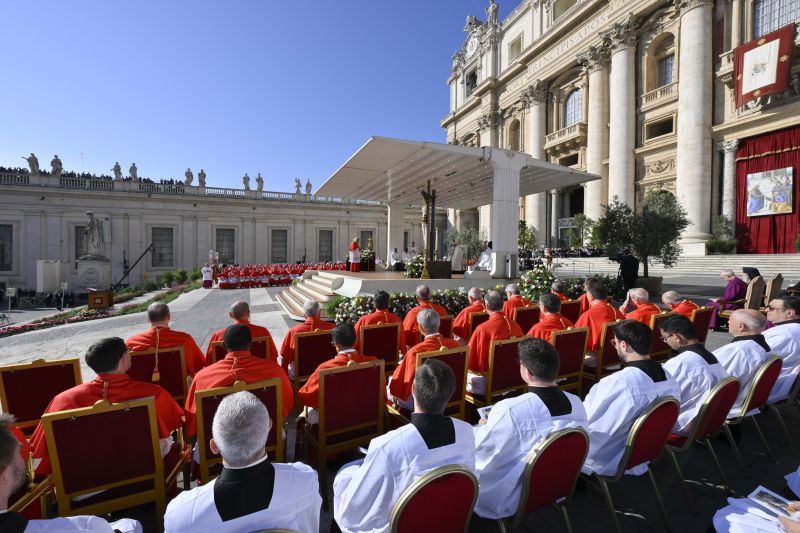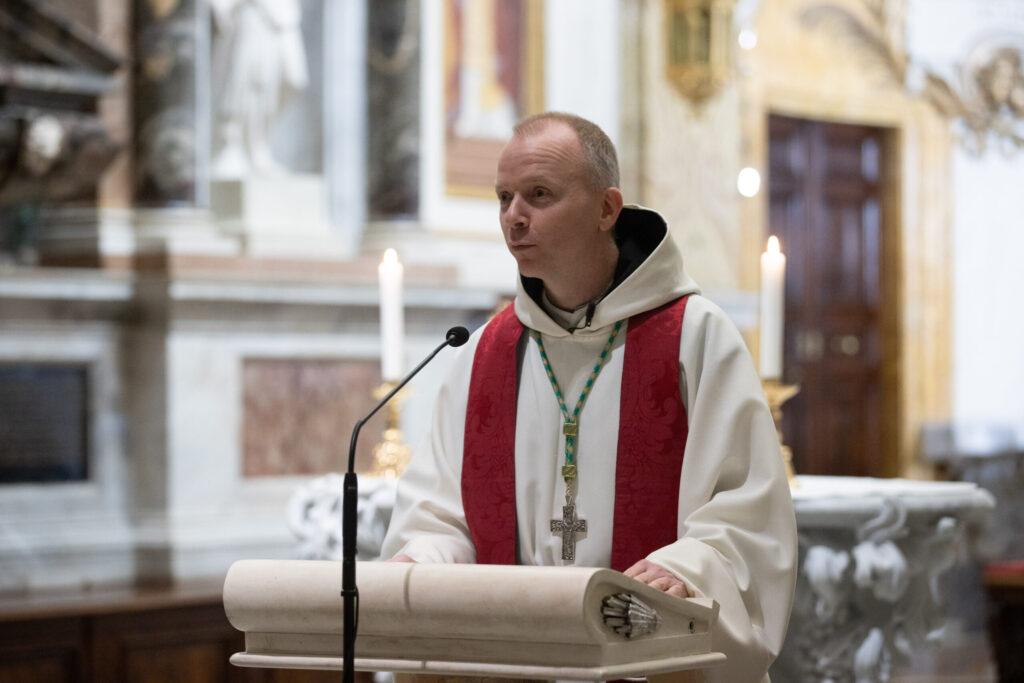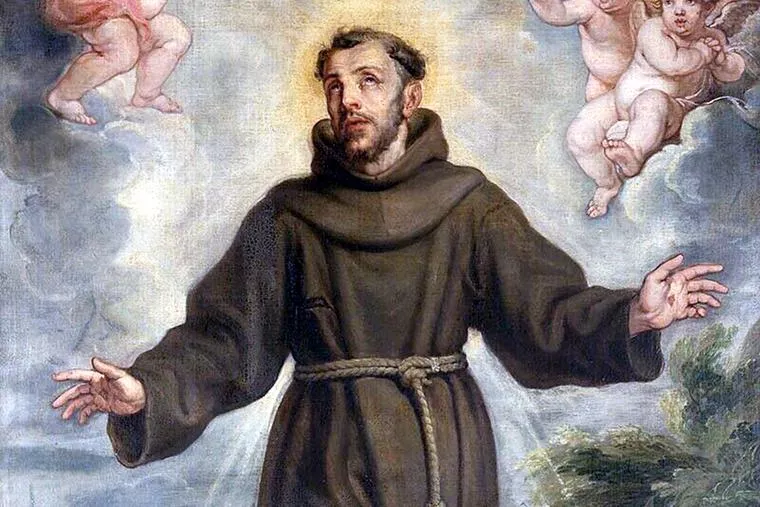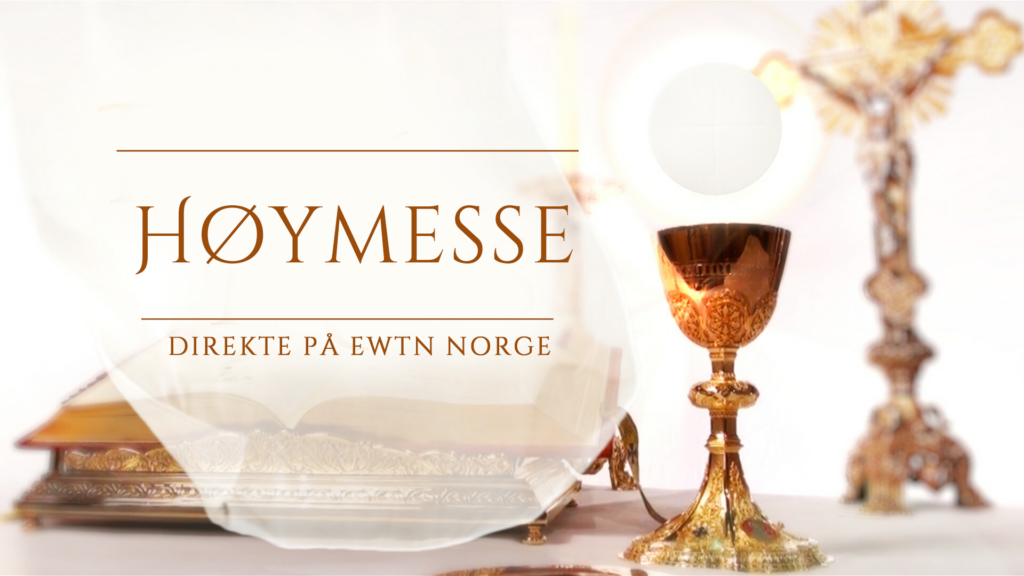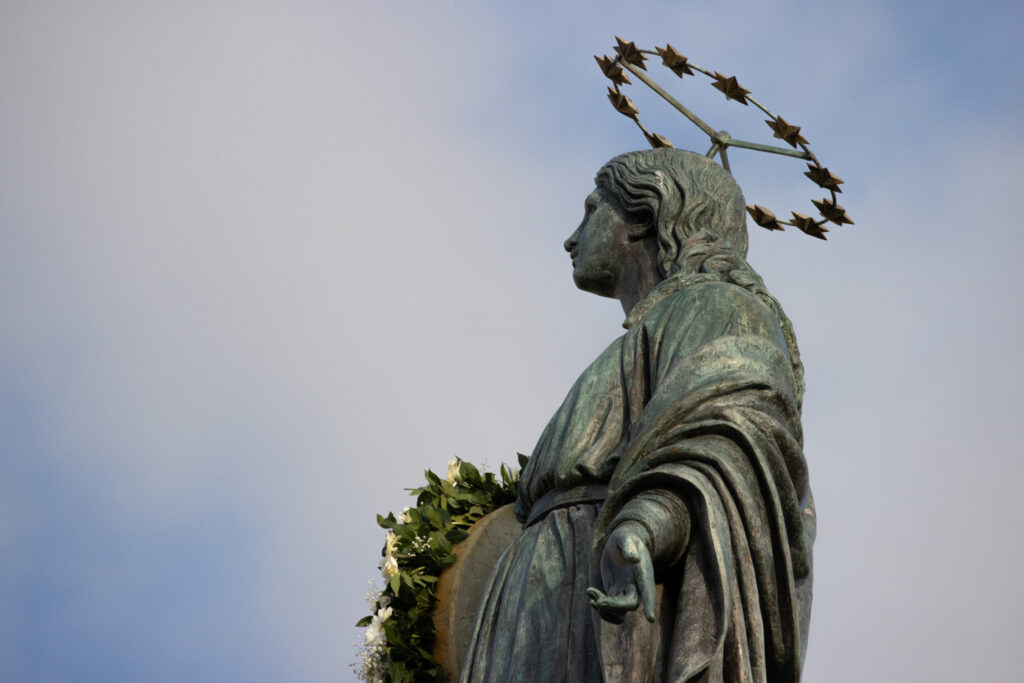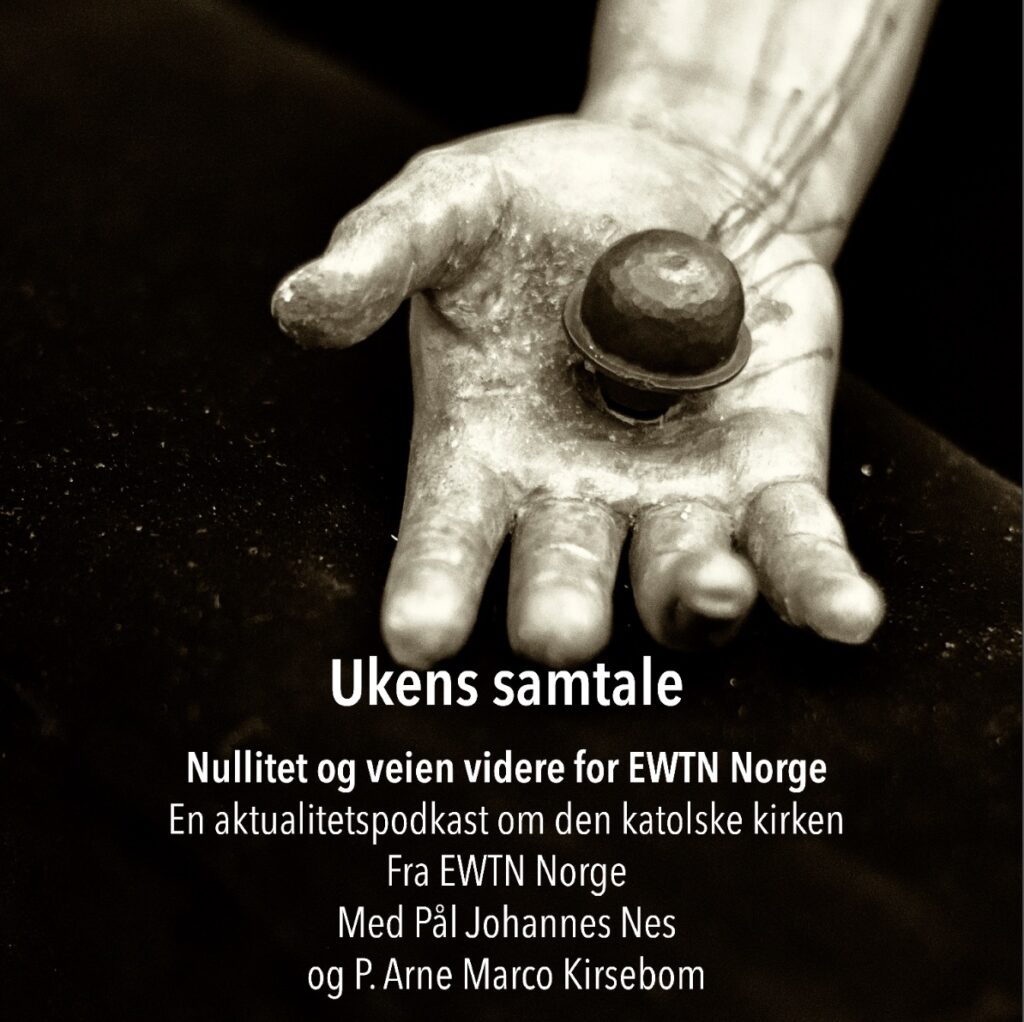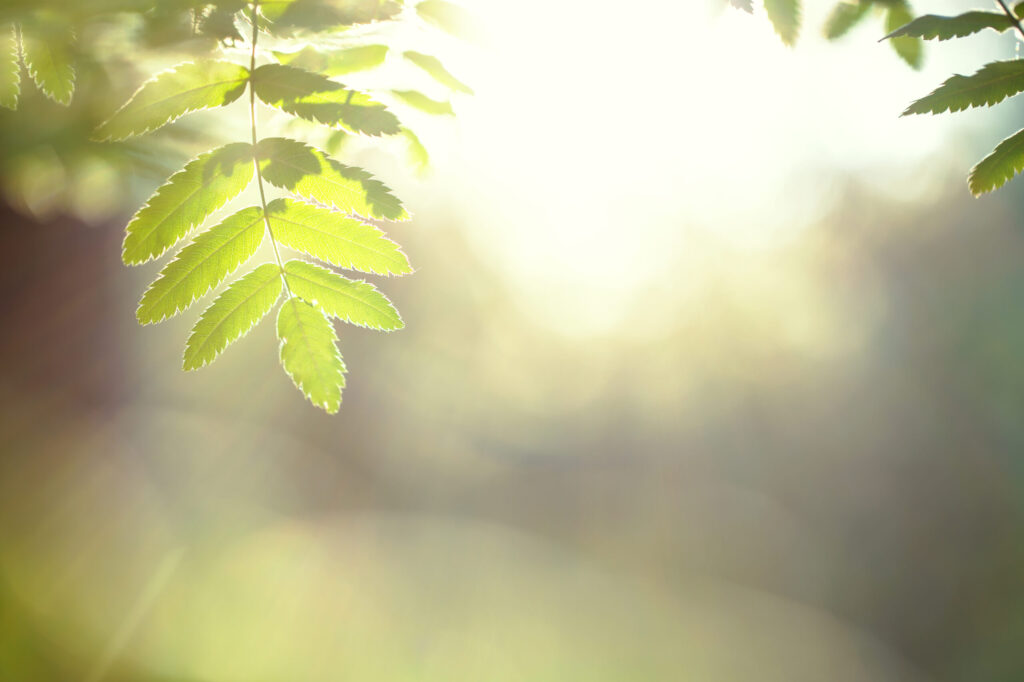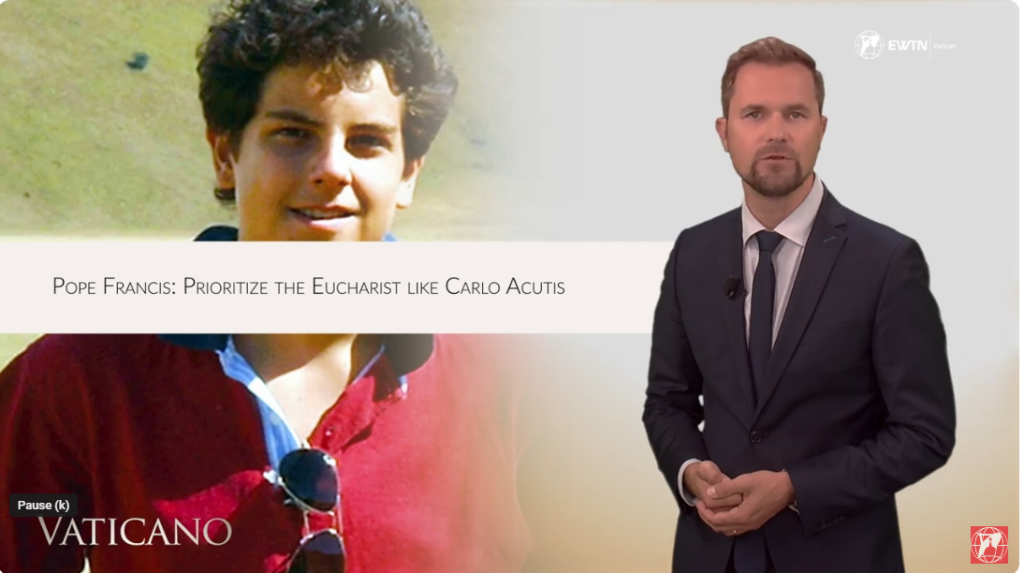Vatican City, Oct 3, 2023 / 15:44 pm (CNA).
Just days before the start of the first monthlong assembly of the Synod on Synodality, Pope Francis convened a consistory to create 21 new cardinals — eight of whom are also delegates in the October synodal gathering at the Vatican.
Following a Mass to create the cardinals on Sept. 30, one of the new “red hats” and a synod member, Cardinal Robert Francis Prevost, said: “Being a synodal Church that knows how to listen to everyone is the way not only to live the faith personally but also to grow in true Christian fraternity.”
Reading a letter of thanksgiving, the prefect of the Dicastery for Bishops said Pope Francis has “reminded us that it is necessary to learn to listen like the saints, like St. Francis of Assisi who listened to the voice of God, the voice of the poor, the voice of the sick, the voice of nature.”
Cardinal Robert Francis Prevost, the prefect of the Dicastery for Bishops. Credit: Credit: Daniel Ibañez/CNA
“The beauty of the universality of the Church that will be manifested in the unfolding of the synod will be a very important sign, which will be able to speak of the mission that all of us baptized have received, in communion with the successor of Peter and in the profession of the same faith,” the 68-year-old U.S.-born cardinal said.
Six cardinals who are participating in this month’s synodal assembly — and five who are not — told CNA their ideas of, and expectations for, the Synod on Synodality.
Participating in the October assembly:
Cardinal Luis José Rueda Aparicio, archbishop of Bogota, Colombia
The synod is “a beautiful moment, a magnificent moment, a kairós, a time of salvation that can generate some fears in some environments, but I say ‘We must not fear.’ The Lord has told us ‘I am with you every day,’ and if we assume that promise of the Lord as a reality, as the Lord’s faithfulness accompanying us in life, he will accompany us,” he said.
Rueda recalled that the Holy Spirit is the protagonist of the synod and asked the laity around the world, as well as in Latin America, and “especially those who follow EWTN and ACI Prensa [CNA’s Spanish-language news partner], to pray that the Holy Spirit will guide us and that we will be sensitive, deep, and willing enough to do the will of God, allowing ourselves to be guided by that work of the Spirit that always positively surprises us.”
Cardinal Luis José Rueda Aparicio, archbishop of Bogota, Colombia. Credit: Daniel Ibáñez
Cardinal Stephen Chow Sau-yan, SJ, 64, archbishop of Hong Kong, China
“I’m hoping that different voices can be heard. And so I’m happy that … laypeople, men and women, religious are represented as full voting members. That will make the synod a lot richer. I hope we will relearn to listen and to listen deeply.”
Cardinal Stephen Chow Sau-yan, SJ, archbishop of Hong Kong, China. Daniel Ibáñez
Cardinal Ángel Sixto Rossi, SJ, 65, archbishop of Córdoba, Argentina
Rossi said his hope for the synod is “to be able to listen to each other, to be able to dialogue and to be able to discern what the challenges of the Church and the world are. I believe that everything has to be directed at the person, putting the human being at the center. We have forgotten the human being and many times we have to put the person back at the center and from there see how to help make each other a little happier.”
Cardinal Ángel Sixto Rossi, SJ, archbishop of Córdoba, Argentina. Credit: Daniel Ibáñez/EWTN News
Cardinal Stephen Ameyu Martin Mulla, 59, archbishop of South Sudan
“My hope is very wide,” Mulla said. “I know that the Synod on Synodality … it is a way of participating, it is a way of communion, it is a way of mission together — in very simple terms — we should hope that this synod will bring a lot of things that will help us understand our faith in modern times. And we would like to say that the synod may be a way of solving the many problems, the many challenges, that the universal Church is facing in each local state and [universally].”
Cardinal Stephen Ameyu Martin Mulla, archbishop of South Sudan. Credit: Daniel Ibáñez/EWTN News
Cardinal Grzegorz Ryś, 59, archbishop of Łódź, Poland
“There are many [expectations],” Ryś said. “The first one is that we will really be open [to] a synodal Church. The synod is not for writing down documents. A synod is to experience the way of life really given by Christ to us. So, when we become the community of people who share the responsibility, who are open to the different gifts of everyone, we will be ready to go out with the mission. And even before, we will be an important sign for society. Then of course, it’s always great to be in a community coming from the different local Churches just to listen and listen and listen and listen to how they experience the most important things in Christianity. This is always a great lesson.”
Cardinal Grzegorz Ryś, archbishop of Łódź, Poland. Credit: Daniel Ibáñez/EWTN News
Cardinal Víctor Manuel Fernández, 61, prefect of the Dicastery for the Doctrine of the Faith
“People who are afraid of strange or misplaced doctrinal advances, and people who, on the other hand, expect great changes, are going to be really disappointed” in the October synod assembly, Fernández said after the consistory on Sept. 30.
The Synod on Synodality, he said, “is not conceived in this vein. At least not this year. Afterwards, we will see what emerges, and next year we will see what happens, but for this synod, this year, we cannot expect too much.”
What can be expected is a “deepening of our self-awareness, of what we are as Church, what the Lord is asking of us, and what the world of today expects as well, and how we can better reach people with the same message we have always had,” he said.
Cardinal Víctor Manuel Fernández. Credit: Daniel Ibáñez/ACI Prensa
Not participating in the October assembly:
Cardinal Pierbattista Pizzaballa, OFM, 58, patriarch of Jerusalem
About his expectations for the Synod on Synodality, Pizzaballa said: “I am not expecting anything specific and precise. What we need to be helped — and everyone in their own context, in different contexts because the Church is plural — is … to have some criteria of the understanding of reality in order to understand how to deal with this reality. But the answer cannot be the same in the Middle East, in Italy, New York, and South Africa…” About his hope for the synod, the cardinal responded: “My hope is Jesus Christ and the risen Lord. All the other things come after.”
Cardinal Pierbattista Pizzaballa, OFM, patriarch of Jerusalem. Credit: Daniel Ibáñez
Cardinal Christophe Pierre, 77, apostolic nuncio to the United States
“The pope, when he launched the synod … made a beautiful homily — for me it’s the light: ‘walking together.’ Why do we need to walk together? Because we live in a world which is threatened by individualism, the fragmentation of society. We have to rediscover togetherness,” Pierre told a small group of journalists Sept. 29.
“And in order to work together in a divided world we need to adopt a new method,” he continued. “Synodality is a method of the Church. We are not here to invent a different Church. Some people are afraid of that — that’s why there is some skepticism, some opposition, some fear. Okay, I understand, you know, that in front of new things you may be afraid. But at the end of the process, we have to start, and this is why the pope wants it. He invites us to learn the way, in the Church, to work together, to dialogue, and to dialogue always in prayer, in the presence of the Holy Spirit, in order to discern what we have to do. This is what the synod is about. So I am not afraid, I am very happy. If the Church is not synodal, it will disappear.”
Cardinal Christophe Pierre, apostolic nuncio to the United States. Credit: Daniel Ibáñez
Cardinal Diego Rafael Padrón Sánchez, 84, archbishop emeritus of Cumaná, Venezuela
Padrón said he expects “a lot” from the Synod on Synodality, and the fact that laity will also participate in the October assembly, he added, “is a contribution that in history will mean a lot, because it will be a very great message for the population, society, and the entire world.”
Cardinal Stephen Brislin, 67, archbishop of Cape Town, South Africa
Brislin was asked to expand on a comment he made to Vatican News in July, when he said the fact that the consistory was scheduled to take place right before the synod was “a wonderful opportunity for the Church, as we embark and battle and struggle with quite a number of new issues that we haven’t really faced as Church before.”
Brislin said Sept. 28: “I think one of the biggest battles that we all face as a Church and as people who believe in God is the fact that so many people seem to be falling away from the Church, so many people seem to be losing their faith. And to me one of the biggest struggles is how do we actually reach out to people. Because we’re offering life to people, God is offering life to people through us. How can we convey that to people in ways in which they understand?”
Cardinal Stephen Brislin, archbishop of Cape Town, South Africa. Credit: Daniel Ibáñez
Cardinal José Cobo Cano, 58, archbishop of Madrid, Spain
The synod “is a process that is guided by the Holy Spirit, but not remotely controlled, but counting on us. I think it is the image of a father who trusts his children, gives his trust to his children and his children grow up, and the father feels very happy because the children have taken up what the father has done for them,” Cobo said. The Holy Spirit “does not remotely control them,” but “accompanies them and guides them … that is the Spirit and that is what he is going to do in the synod, what he has done in the Church throughout its life. He is always accompanying. And when the Church wants to listen to him, he lets himself be heard.”
Cardinal José Cobo Cano, archbishop of Madrid, Spain. Daniel Ibáñez
Almudena Martínez-Bordiú, Courtney Mares, and Colm Flynn contributed to this report.

